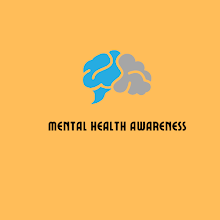What Is The Psychology Of True Love And Attraction?

Love is enthralling and intricate. Particularly romantic love seems to be a lovely enigma that is difficult for us to comprehend. Although many of our romantic ideas and sentiments may be expressed via poetry and music, love is so elusive that science is required to describe it. In the end, there is a lot that psychologists can say about how and why individuals fall in love. Both men and women go through a lot of changes through passionate love. Because falling in love is more of a high that leaves individuals feeling ecstatic than a process, the phrase "falling in love" sounds very inappropriate. The first attraction is the first stage of falling in love. It's the intense moment when we first meet someone and feel invigorated and conscious of our heart racing. It has been discovered that several chemicals, including oxytocin, phenethylamine, and dopamine, play a part in human experiences and actions connected to love. They have a similar effect to amphetamine, causing us to become alert, aroused, and socially anxious.
What Is Love?
To fully discuss the meaning of love in this short text would be impossible. What I can tell is that oxytocin, serotonin, and dopamine human connection hormones are linked to the warm, intense affection that is love. I believe that these elements are, in part, what makes us relate to our relationships. Bonding, trust, collaboration, caring, and protection may all result from this feeling of attachment. These are human needs, and studies have shown that glancing at a photo of your mate may help you feel these emotions in only a few minutes.
Then why can't you prevent the connection feelings if love is complicated? l or state of mind. Just because love feels wonderful doesn't mean that it's simple to define and comprehend. There are several emotional factors that affect the outcome. The feeling of falling in love can be compared to the overwhelming experience of falling in love with someone when one person experiences a deep emotional bond and desire for intimacy with another person. This kind of emotional attachment can manifest itself in a variety of ways, including as a personal friendship, a loving partnership, a bond with one's family, or even a religious affiliation. The kind of experience that love offers is one aspect that sets it apart from other types of connection.
Love has an intense, visceral feeling. The experience involves a lot of emotion, which makes it one of the most gratifying experiences a person may have in their lifetime. Infatuation or desire are terms used to describe a love that doesn't seem very visceral or real. Romantic love is one of the most nuanced feelings people are capable of experiencing, research over the years has demonstrated. Scientists have discovered that this vague and elusive emotion is actually a combination of chemical and physiological processes that work hand in hand with one another. Psychology has put out numerous hypotheses as to what love actually is.

Aspects Of Love:
There are three aspects to love: Attraction, Concern, and Commitment.
- Attraction: I want to get to know you.
- Concern: I must defend the stage.
- Commitment: I'm committed to making this work forever.
In other words, a love connection must be strong and contented in order to develop and last. Love requires a lot of tolerance and a sound psychological foundation.
What Is The Basis Of Love In Science?
The Color Wheel Model Of Love:
.jpg)
- Eros: The Greek word for "passionate" or "erotic" is the root of the English word "Eros." Lee proposed that this kind of love entails both passionate physical and emotional feelings. It stands for the adoration of the perfect partner.
- Ludus: The term "ludus" is a Greek word that means "game." This kind of love is seen as amusing and enjoyable but not always serious. Those that display this kind of love are hesitant to get too close and are not prepared for the commitment. As a result, it portrays love as a game.
- Storage: Storage is a Greek word that means "natural attachment." Family love comprises the affection shared by siblings, parents, and other close relatives. This love may also come about through friendship when individuals with similar goals and responsibilities eventually grow to care about one another. As a result, it symbolizes love as friendship.
What Are The Signs Of True Love?
- You feel safe with them.
- They listen.
- They acknowledge your differences instead of trying to change you.
- You can communicate easily.
- They encourage you to do your own thing.
- You trust each other.
- They make an effort.
- You know you can collaborate or compromise.
Respect In Love:
- Integrity and fast, clear communication.
- Even in heated exchanges, use courteous words.
- No need to abandon your limits.

%20(1).png)

%20(1).jpg)
2 Comments
ReplyDeleteMahindra Blossom Whitefield's most popular activity among the brands of adorable project opulence apartments and flats is the gym. To accumulate your life in Bangalore in aloof concordance, please feel humiliated. Mahindra Blossom Whitefield is offering 3 and 4 BHK with lots of activity and remains in the forefront regarding your impressive accomplishments and aggressive stats. Mahindra Blossom Whitefield. Be sure you always seem as competent as possible.
Visit -https://mahindra.ind.in/mahindrablossom/
Shapoorji Pallonji Joyville Vyomora in Hinjewadi Pune offers well-designed and liked spacious 1, 2, and 3 RHK booking resident apartments.
ReplyDeleteJoyville Vyomora township provides all the necessary offices and make right time improvements to ensure a better quality of life for the residents.
Joyville Vyomora Hinjewadi is an important business area in Pune where you'll find training centers, software companies, and IT parks. The area is closely linked to well-known spots in the city, and many building projects are underway in Pune.
https://www.shapoorjipallonji.ind.in/joyvillevyomora/